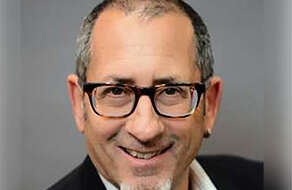Don’t follow the science off a cliff
Tom's more or less semi-annual compilation of words and phrases that really get on our nerves.
The pandemic has refused to make a dignified departure from our lives. Besides ongoing health and economic devastation, it continues to spawn new words and phrases that quickly become grating. For my year-end 2021 column, I present my candidates for the downright annoying cliches I’d like to spike. (Is that a simile or a metaphor?)
Follow the science. That phrase makes me want to holler and throw things. Notice how mostly politicians and corporate executives hoping for good PR tend to say it way more often than actual scientists? Like the airline CEO, forced to cancel many Christmas Eve flights, who issued a statement that the company is following the science. If thousands of people are out sick and you can’t staff your flights, that’s following reality, pal.
Honest utterers of follow the science use it as shorthand for, “this is what I think based on the facts or data I’ve actually seen for myself.” More often the phrase is thrown up as a trump card (no pun intended) to make their highly controvertible assertion sound incontrovertible. This when the “science” of the pandemic seems to change by the hour.
F.T.S. has a cousin named common sense. This or that policy or action is paraded as beyond question by us smart people because it’s only common sense. When I hear that, my skepticism meter pins to the right.
Some pandemic cliches are annoying not because they front for subterfuge, but because we’re simply getting sick and tired of them. I put social distancing, vaccine (and mask) mandate, and these difficult (or trying, challenging, and uncertain) times in that category.
And can we kill off virtual? Few words are used more often and less meaningfully. Example: Kids learning from remote, online teachers aren’t getting a virtual education. They’re getting a real education. It might be a bad one, though. If you want an accurate definition of virtual, ask a computer scientist. The word has a definite, non-virtual meaning.
Pandemic cliches also come in the visual variety. As ruler of the world, I would ban all TV networks from showing even five seconds more of someone’s bare arm, usually a flabby one, getting stuck with a vaccine needle. And please, no more telephoto shots of people on street corners or in cars with masks on.
Some visual cliches are unavoidable. Every other television guest “expert” has glommed onto the use of their backdrop to parade a stack of the trivial book they just convinced someone to publish, the awards with which they’ve been showered, or just their wealth and success as evidenced by their artwork and lampshades.
A few cliches in the federal market I’d like to retire:
Anything referring to Silicon Valley. For one thing, there’s no silicon down there in the valley, otherwise the nation wouldn’t have an integrated circuit shortage. This tired piece of shorthand refers to basically the spawning ground of companies devoted to finding ways to mine people’s personal information for profit. That’s not what people mean when they liken something to Silicon Valley. Plus you can find interesting zones of innovation — that’s another — throughout the country now.
How about data is the new oil. Let’s combust that one. The more you pull it apart, the less sense this simile makes. Anyway, you could argue that data dates back as far as oil. You needed an oil lamp to read the abacus at night.
The first week of 2022 will feel much like the last week of 2021. Still, I like getting rid of junk at the end of a year. Two old duffel bags, a manual typewriter, a big laser printer and an upright piano have left my house in recent days. Follow the science will follow them out the door.
Nearly Useless Factoid
By Alazar Moges
The first $1 bills, then known as notes or legal tenders, were issued in 1862 and featured a portrait of Abraham Lincoln’s Secretary of Treasury, Salmon P. Chase.
Source: Bureau of Engraving and Printing
Copyright © 2025 Federal News Network. All rights reserved. This website is not intended for users located within the European Economic Area.
Tom Temin is host of the Federal Drive and has been providing insight on federal technology and management issues for more than 30 years.
Follow @tteminWFED






